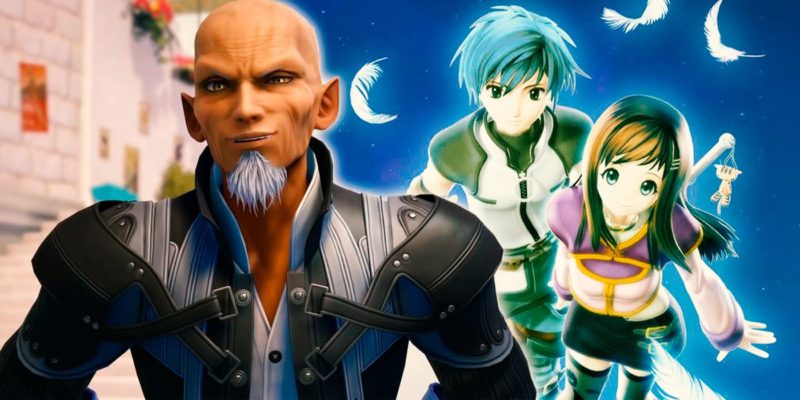
[ad_1]
As video game storytelling becomes more complex, it’s worth examining why poorly-received twists destroy some games but leave others mostly intact.
Plot twists can very quickly become contentious. From the death of Sherlock Holmes to the infamous ending of Game of Thrones, the history of storytelling is rife with examples of shocking swerves prompting severe fan backlash. While a certain degree of unpredictability is often required to keep ongoing stories interesting, trying too hard to be surprising often results in an upset audience and hasty back-pedaling or dogged defiance on behalf of creators.
Despite technically still being the new kids on the block, video games have proven in their short life that they’re no exception to this rule. The medium has seen plenty of objectionable plot twists, especially in role-playing games. However, unlike films and novels, games aren’t just a narrative experience: they have systems and mechanics that go beyond merely following a linear story. This raises an interesting question: can an RPG survive a bad twist if it plays significantly well, or does bad writing doom them just as quickly as their traditional counterparts?
RPGs are by no means the only genre to have demonstrated the capacity for poor writing. The retooling of Metroid‘s protagonist Samus Aran from a no-nonsense action hero to a whimpering damsel in Other M was protested by Nintendo fans across the globe, and the third-person shooter The 3rd Birthday effectively killed its franchise with its disgusting treatment of women and children. However, RPGs tend to be more susceptible to poor writing simply because they have more of it and thus more time to make mistakes.
One needs to look no further than Star Ocean for perhaps the most notorious RPG twist. The third game, Til the End of Time, had a curiously heroic depiction of artificial intelligence achieving sentience. In a vacuum, it was a unique spin on the old trend of machines challenging their human creators. In practical reality, however, it was the third game in an ongoing series and effectively declared that a decade’s worth of storytelling had retroactively always been an elaborate computer game.
TTEOT‘s twist split the fandom right down the middle, and the series has never recovered. Presumably, this is why every game since has refused to build on its ideas. Instead, they either ignore its events entirely or introduce new plot elements that make it easier for fans to do so. In either case, however, the series’s diminishing critical and commercial presence proves it’s struggled to recapture its former glory.
So, why did Star Ocean‘s twist sink the proverbial ship when something like Kingdom Hearts seems to rupture its hull with every other game and somehow still stay afloat? After all, the franchise is infamously synonymous with memetically confusing story beats. Whether it’s the inconsistent lore surrounding the series’ many powers and weapons, the question of what the titular artifact practically does or how every other character seems to be a version of the archvillain Xehanort, it would be an understatement to call the overall story nonsense.
Yet the series’ detractors often miss that such nonsense is the appeal. Kingdom Hearts moves with the energy of an inexperienced fanfiction writer, flitting from one idea to the next and referencing favorite films and characters with only the barest sense of rhyme and reason. It’s childish, but children don’t always need explanations; sometimes things happen in their land of make-believe “because it’s magic.” Kingdom Hearts operates on this kind of logic, and while it doesn’t make sense to everyone, reaching its intended audience has never required it to do so.
If anything, Kingdom Hearts stumbles hardest when trying to build serious lore and continuity. Its villainous Nobodies were a fascinating faction whose lack of emotions inherently raised all sorts of interesting philosophical questions about artificial life and what constitutes “real” feelings. Unfortunately, the revelation that they could indeed have hearts defeated their entire purpose. After all, if they can develop true sentiments, does that not inherently destroy what makes them unique?
Yet, despite this self-defeating twist, Kingdom Hearts would live to baffle players another day. Star Ocean, by contrast, lost most of its fans, and the reason why probably has to do with how it broke the illusion. Audiences are good at suspending their disbelief to get invested in a fictional story, even if what they’re seeing is as unbelievable as Kingdom Hearts. However, a story that acknowledges it is fiction runs the risk of killing that investment. Unless a game is being deliberately silly, it can be hard to care about its stakes if the writing admits they don’t exist.
With all this in mind, perhaps the answer to the original question comes down to a matter of tone. A story that makes a serious intellectual argument but drops the ball at the conclusion is unlikely to be remembered well, but a lighter one can pick it back up and keep playing as if nothing happened. RPGs like Star Ocean stagnate because each new game spends so much time apologizing for past mistakes. Games like Kingdom Hearts stride boldly forward because they aren’t afraid of making new ones.
About The Author
[ad_2]





